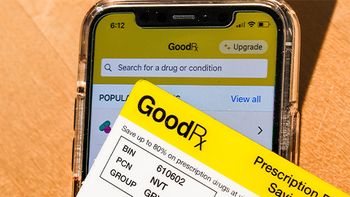
Senate investigation finds gaping holes in international mail security
‘Shocking’ ease of buying and obtaining delivery of opioids has implications for drug importation
In a study started in May and concluded with a
“What we are left with is a federal government whose policies and procedures are wholly inadequate to prevent the use of the international mail system to ship illegal synthetic opioids into the United States,” said Senator Robert Portman (R-OH), chairman of the subcommittee; his state is one that has been particularly hard hit by the current opioid abuse epidemic. While he has one potentially beneficial recommendation—that the USPS require “advanced electronic data” (AED) for mail coming to the US—that step is only useful to the extent that the other federal agencies can act on AED information to interdict deliveries. (Moreover, AEDs are routinely faked.)
And while this subcommittee report was focused on opioid shipments exclusively, its findings have implications for illicit deliveries of all types of drugs, including counterfeits that reach US patients.
E-commerce flood
The subcommittee’s investigation began after a May 2017 hearing; investigators started by finding how easy it is to locate fentanyl sources simply by searching on the term “fentanyl for sale.” (Ever-helpful Google not only lists these search results, but also related searches like “where can I buy fentanyl in the United States,” and even—it turns out—review sites for “research chemicals”—a popular euphemism for illicit drug labs).
The Senate investigators selected a handful of the fentanyl sites and mimicked being a purchaser, finding that they’ll accept many types of payments, from bitcoin to bank transfers. And (apparently) by cross-checking financial transactions with these sites, could pinpoint numerous US drug buyers—some of whom, subsequent checking found, had already died from opioid overdoses. (This investigatiion also uncovered high-volume importers who are, presumably, illegal drug dealers. And while that information was forwarded to law enforcement, it begs the question why DEA isn’t routinely doing this to identify such dealers.)
Under national and international agreements, AEDs are routinely required by ECOs (express consignment operators, which include FedEx, UPS and others); however, the USPS does not routinely require AEDs, as it is hemmed in by international postal treaties (the Universal Postal Union, now a UN agency, dates back to 1874). For this reason, illicit drug importers prefer the USPS.
There are mechanisms for inspecting foreign mail deliveries (something that FDA occasionally pitches in with, as evidenced by its annual participation in
The final straw, as it were, is the lack of coordination between CBP, DEA and USPS. A pilot program for taking AEDs selected by CBP out of the USPS stream at JFK Airport in New York—one of the largest international mail delivery centers in the US—has had mixed results because while CBP is trying to interdict illegal shipments, USPS is trying to move the growing volume of packages faster. Spurred by the Senate subcommittee, USPS is now expanding the pilot to other delivery centers.
One worrisome statistic has come out of the CBP work of recent years: “Of the total seizures (both Postal Service and ECOs), 47% (or 144,117 items) were illegal or inadmissible drugs while the remaining seizures were merchandise,” according to a 2017 Government Accountability Office report cited by the subcommittee. That speaks to illicit drug trafficking—of both controlled substances and many other types of drugs—flowing in via international mail. The seizures include both small-quantity and bulk chemical deliveries, and such items as pill presses; all the things helpful to a drug counterfeiting business. This problem isn’t going to go away soon.
Newsletter
Stay ahead in the life sciences industry with Pharmaceutical Commerce, the latest news, trends, and strategies in drug distribution, commercialization, and market access.




